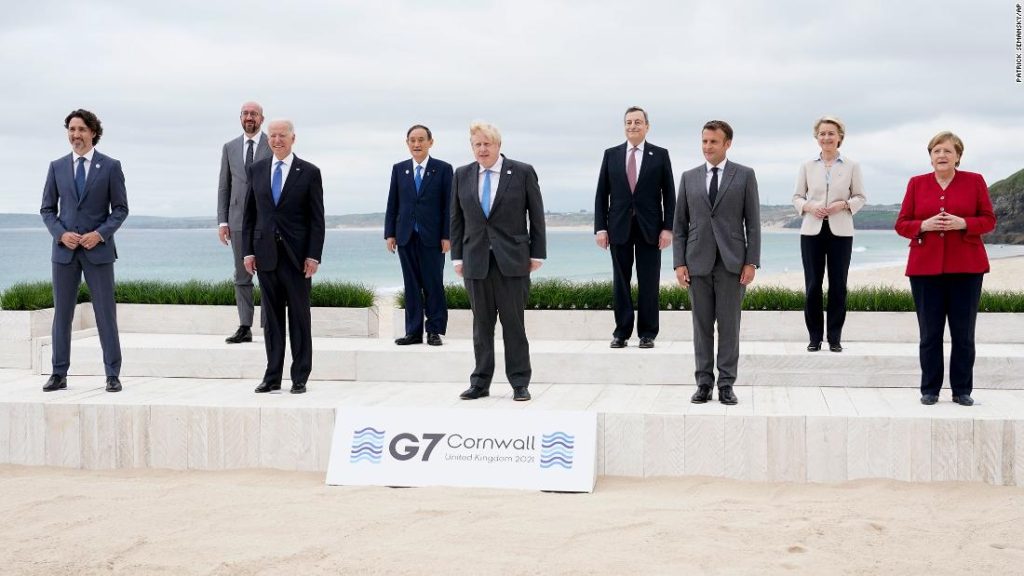Carbis Bay, England/Geneva/New York, June 13 – The World Health Organization welcomed the commitment by leaders of the Group of Seven wealthy democracies to donate 870 million vaccine doses to low and low-middle income countries over the next year as part of efforts to end the pandemic.
The G7 under the United Kingdom leadership ended its three-day summit with a statement with calls for more investment in all tools to end the pandemic. The G7 said most of the 870 million new vaccine doses will be delivered through the ACT Accelerator partnership, WHO’s vaccine provider, which said the total funding committed to it remains US$ 15.1 billion with a gap of over US$ 16 billion.
The G7 countries are the United Kingdom, the United States, Canada, France, Germany, Italy and Japan. The European Union, Australia, India, South Africa and Republic of Korea were invited as guests.
A statement by WHO said the G7 leaders confirmed their support for “all pillars of the ACT-Accelerator across treatments, tests and strengthening public health systems as well as vaccines.”
“Additionally, they indicated their intention to work together with the private sector, the G20 and other countries to increase their vaccine contribution over the months to come. Since their G7 Early Leaders’ Summit in February 2021, the G7 has committed one billion doses in total.”
The statement said WHO Director General, Dr Tedros Adhanom Ghebreyesus addressed the G7 summit and urged “many other countries are now facing a surge in cases – and they are facing it without vaccines. We are in the race of our lives, but it’s not a fair race, and most countries have barely left the starting line. We welcome the generous announcements about donations of vaccines and thank leaders. But we need more, and we need them faster.”
WHO said over US$ 16 billion are still needed in 2021 to fully fund the work of ACT-Accelerator In order to deliver products where they are most needed, help establish testing for 500 million people in low- and middle-income countries by mid-2021 and help secure the necessary supply of oxygen as well as distribute 165 million doses of treatments including dexamethasone which can save lives of people critically ill with COVID.
Carl Bildt, WHO Special Envoy for the ACT Accelerator, said: “We welcome these commitments but there is still a significant funding gap that must be closed if we are to get the urgently needed treatments, including oxygen, and tests, to low and lower-middle income countries so we aren’t flying blind to where the virus is and how it’s changing. The time to act is now. We look to the G7 and G20 to fund the work of the ACT Accelerator, the global multilateral solution that can speed up an end to the pandemic. The world needs their political leadership because left to rage anywhere, the virus will remain a threat everywhere.”
United Nations correspondent journalists – United Nations correspondent journalists – United Nations correspondent journalists
United Nations journalism articles – United Nations journalism articles – United Nations journalism articles

